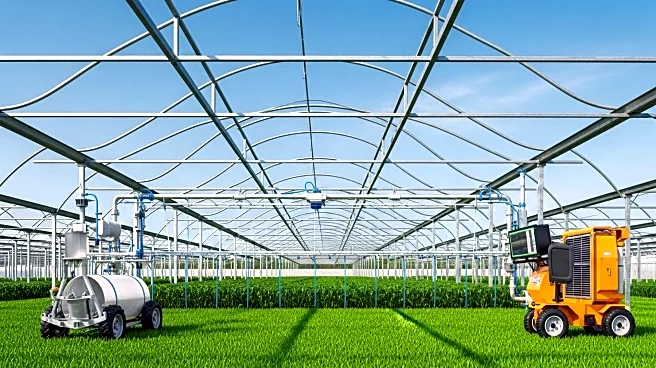What is the story about?
What's Happening?
India's agricultural sector is facing significant pressure due to new US tariffs imposed by President Trump, doubling tariffs on Indian imports to 50% as of August 27, with potential increases to 100%. This move affects key export categories such as marine products, Basmati rice, spices, fresh fruits, and vegetable oils, which collectively accounted for $5.7 billion in exports to the US in the fiscal year 2023-24. The tariffs are expected to make these exports unprofitable for Indian farmers, prompting them to explore alternative markets like Russia and China. Despite these challenges, industry analysts suggest that the pressure could accelerate the adoption of agricultural technology as farmers seek to reduce input costs, improve yields, and access new markets. This situation positions India as an attractive destination for agtech investment, with global agribusiness majors like Bayer and Syngenta already investing heavily in the country.
Why It's Important?
The imposition of US tariffs on Indian agricultural exports is significant as it could reshape India's export dynamics and accelerate technological transformation in its agricultural sector. With agriculture accounting for 18.2% of India's GDP and employing 46% of its workforce, the sector's adaptation to new technologies could enhance productivity and sustainability. This shift is crucial for maintaining economic growth, especially as India aims to become the world's third-largest economy. The adoption of agtech could also help Indian farmers address challenges such as water scarcity, soil health degradation, and climate variability. Furthermore, the increased focus on technology could attract more investment from global agribusiness companies, bolstering India's position as a key player in the global agricultural market.
What's Next?
As India navigates the impact of US tariffs, the country is likely to continue exploring alternative export markets and investing in agtech solutions. The Indian government may further support climate-smart farming initiatives, creating an environment conducive to technological innovation. Companies like Bayer and Syngenta are expected to expand their product offerings in India, focusing on solutions that enhance productivity and sustainability. The ongoing trade pressures could serve as a catalyst for transformation, positioning India as a leading agtech market in the coming decade. Additionally, the Indian agricultural sector's growth trajectory may attract more international investment, further integrating technology into farming practices.
Beyond the Headlines
The broader implications of the US tariffs on Indian agriculture extend beyond immediate trade dynamics. The push for technology adoption in response to these tariffs highlights the sector's need to address structural challenges such as labor shortages and environmental pressures. As farmers increasingly adopt modern agronomic practices, improved seeds, mechanization, and digital solutions, the sector could experience a significant transformation. This shift may also influence global agricultural supply chains, with India playing a pivotal role in meeting international quality standards and expanding exports. The focus on technology-enabled intensification could lead to long-term improvements in food security and sustainability, benefiting both domestic and global markets.

















